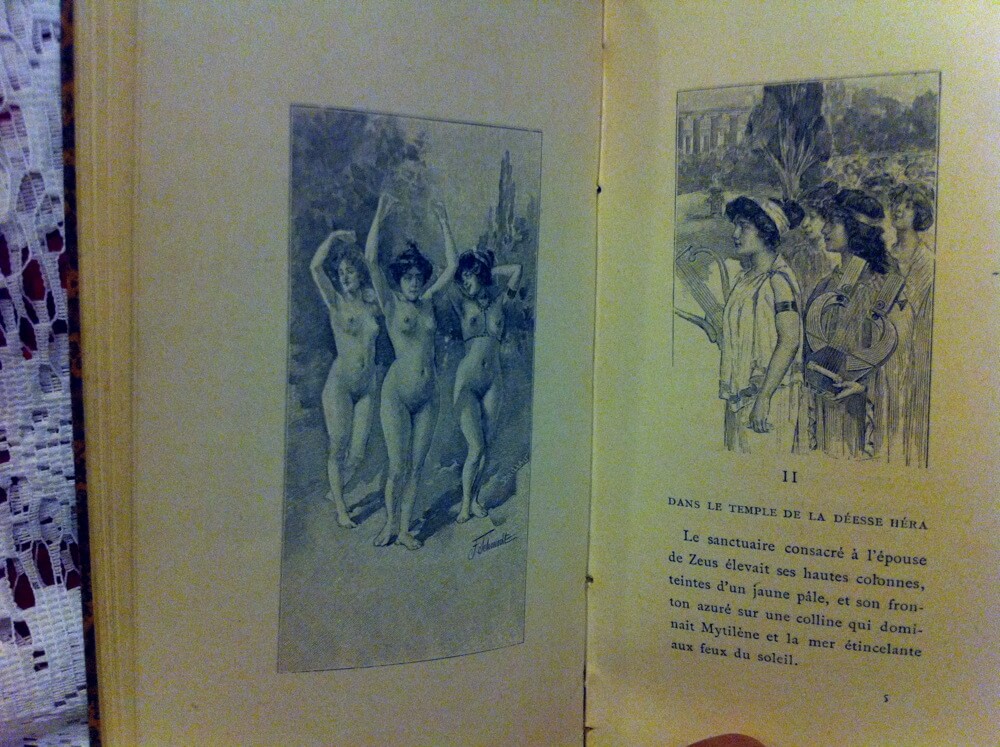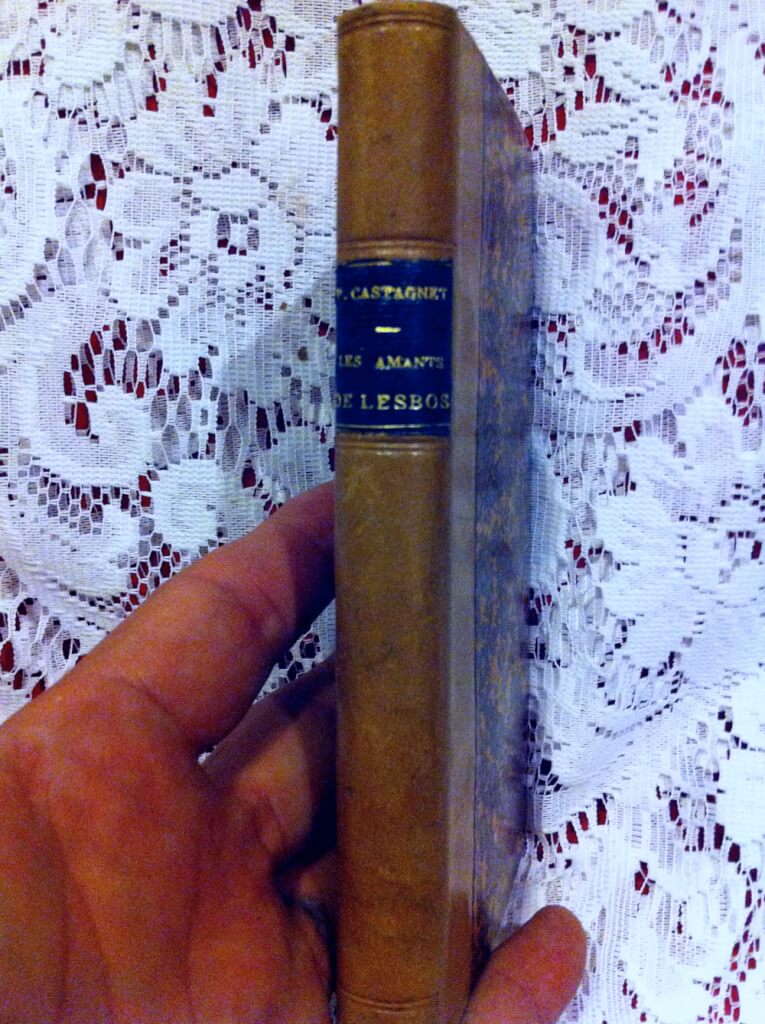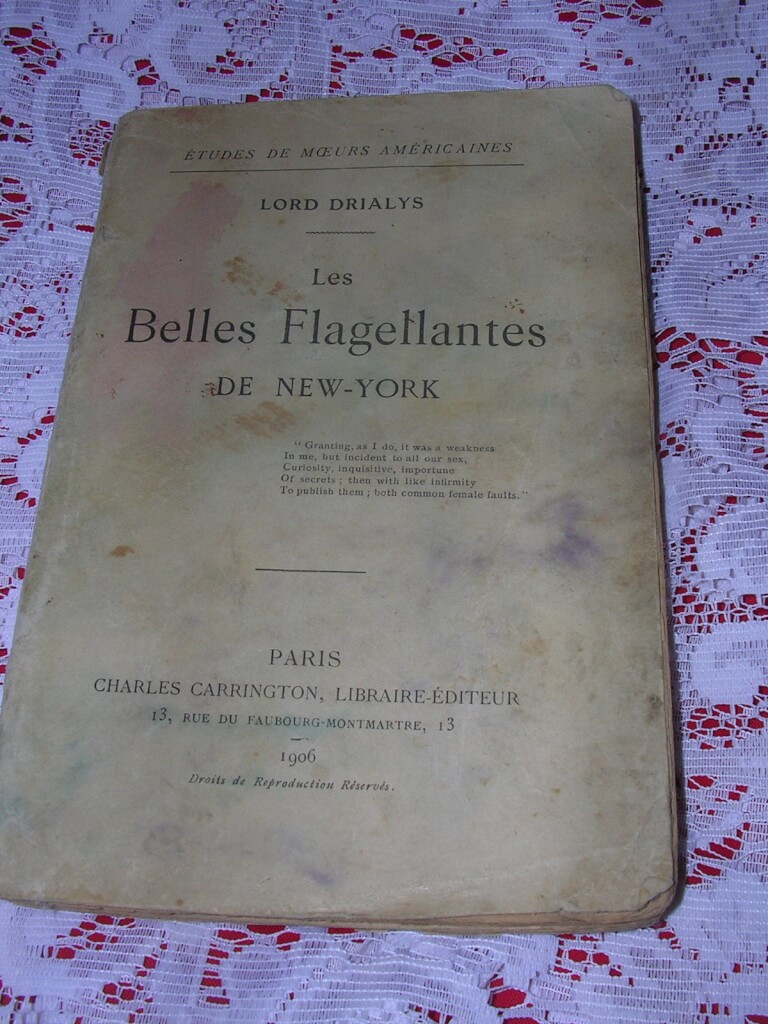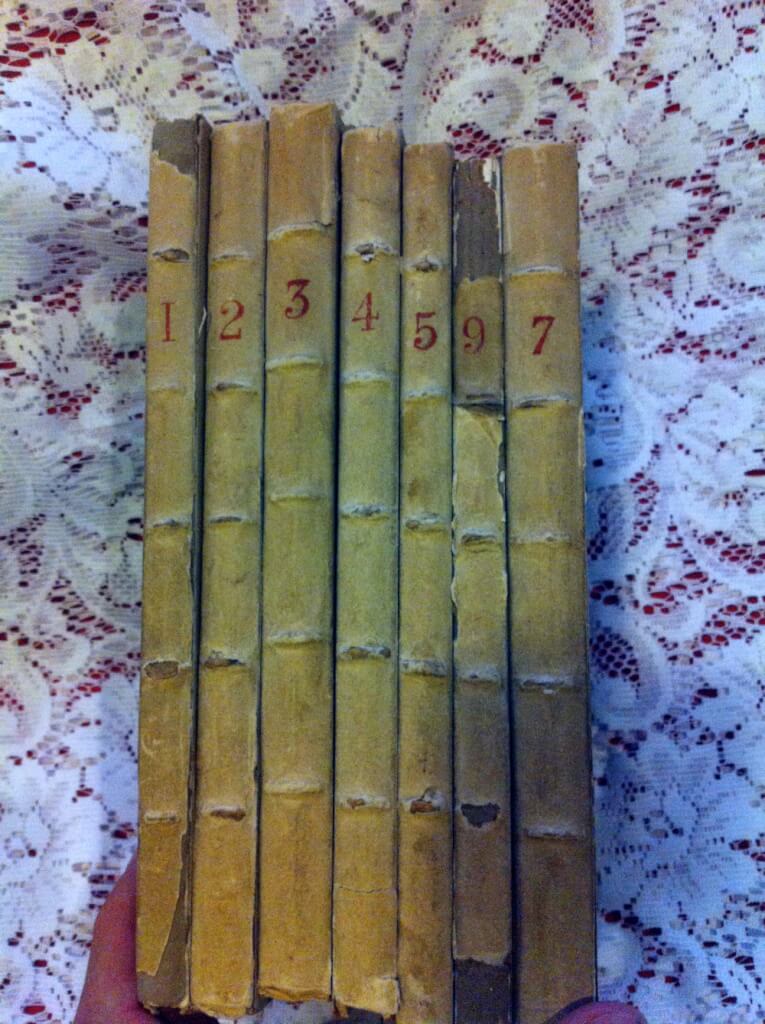The Ragionamenti or dialogues of the devine Pietro Aretino, Pietro Aretino, trans. Isidore Liseux (Isidore Liseux, Paris, 1889)
8.25″ X 6″, 6 volumes, xxxv+83pp, 89pp, 100pp, 134pp, 129pp, 138pp, original publishers paper wraps in just good condition with chipping at the top and bottom of the spine on some volumes, internal pages in mint condition, protective cover with green boards in fair condition, some joints loose and cloth peeling away, edges deckled, ex-libris of E. M. Schnadig
Pietro Aretino (1492-1556) was one of the most important figures in Italian Renaissance literature, and certainly the most controversial. Condemned by some as a pornographer, his infamy was due largely to his use of explicit sexuality and the vulgar tongue of ordinary speech in much of his work. Dialogues center around a conversation between two rather frank, experienced, and sharp-tongued women on the topic of women’s occupations. We learn that at the time there were only three: wife, whore, or nun. Their discussion is a rollicking account of the advantages, perils, and pleasures each profession offers. Not only was Dialogues the first erotic book in the Christian world to be written in the common vernacular, it was but one of the few to describe the obscenity of commercial love, and is thus a cornerstone of both Italian literature and Counter-Renaissance vigour.
First dialog: The Life of Nuns
Second dialog: The Life of Married Women
Third dialog: The Life of Courtesans
Fourth dialog: The Education of Pippa
Fifth dialog: The Wiles of Men
Sixth dialog: The Bawd’s Trade
Isidore Liseux (1835-1894) was a French bibliophile and publisher of erotica and curiosa. His publications were mostly rare texts of 16th to 18th century authors, hard to find and little known books which were usually translated and annotated by his friend and associate Alcide Bonneau or by Liseux himself. Liseux and Bonneau, both ex-priests, knew each other since seminary. His books were published in small numbers, on high quality paper, and with excellent typography. His usual printers were Claude Motteroz, Antoine Bécus, and later Charles Unsinger. Liseux’s books were published openly as the climate was more permissive in Paris at the time. His books were so well regarded that pirates of his books and even unrelated books bearing his imprint with a false date were published clandestinely into the 20th century. French poet, Guillaume Apollinaire wrote: “The publications of Liseux are more and more sought after because they are correct, beautiful and rare.” (Le flaneur des deux rives, 1918).









Reviews
There are no reviews yet.